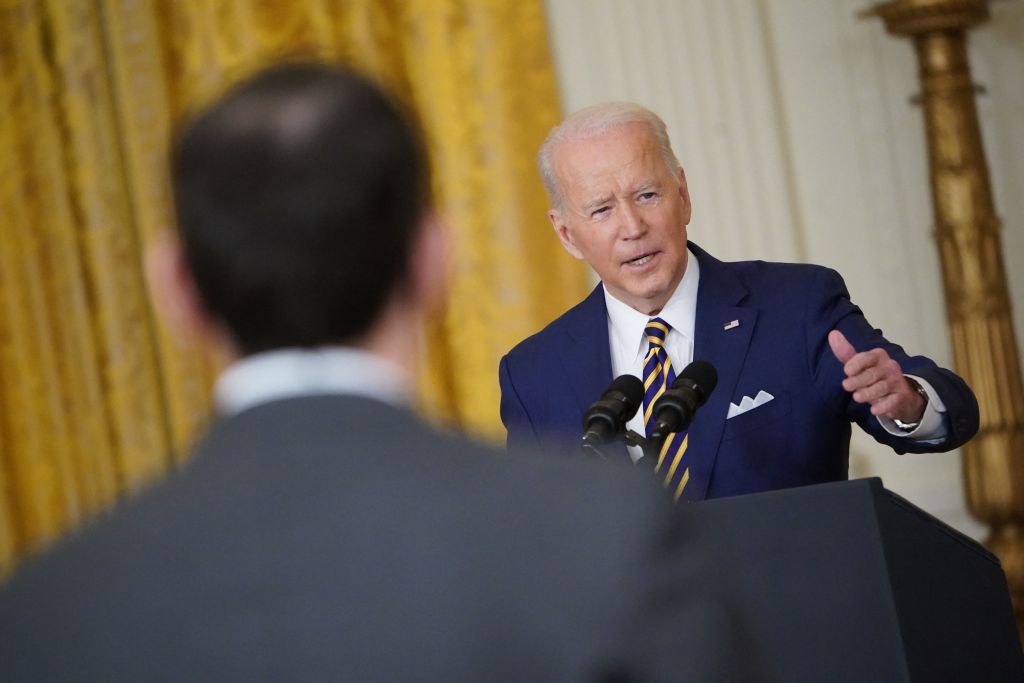Biden: Administration ‘Doesn’t Deal with 5G’
President says C-band interference issue is between airlines, wireless companies

The smarter way to stay on top of the multichannel video marketplace. Sign up below.
You are now subscribed
Your newsletter sign-up was successful
President Joe Biden said during his press conference Wednesday (January 19) that his administration “doesn’t deal with 5G,” by which he appeared to mean indirectly, since he has also signaled the administration has been a key player in a key 5G issue.
The president was asked what he has done to restore the public’s faith in the competence of his administration on issues including 5G and the potential that the rollout of the technology by AT&T and Verizon in C-band spectrum adjacent to aviation systems could cause harmful interference to radio altimeters that planes use in bad-weather takeoffs and landings.
Biden said as to “whether or not there is competence in dealing with 5G,” the fact was that the issue was between two “private enterprises” — one promoting 5G in the wireless industry and the airlines — though he conceded both are regulated by the government.
Also: Biden: Cable Looks Like It‘s ’Going South‘
He said his role was to push as hard as he could for a delay in the 5G rollout that was requested by the airlines so they could “modernize.” Wireless carriers have said the airlines have already had a couple of years to do so.
But as to his administration not dealing with 5G, Biden has issued statements coinciding with the two voluntary rollout delays by Verizon and AT&T, as well as their decision to provide airport buffer zones, at least for the time being.
In the president’s January 18 statement, issued after the agreement on the buffer zones, the administration for all appearances seemed definitely to be dealing with the issue.
The smarter way to stay on top of the multichannel video marketplace. Sign up below.
“My team has been engaging nonstop with the wireless carriers, airlines, and aviation equipment manufacturers to chart a path forward for 5G deployment and aviation to safely coexist,” he said, “and, at my direction, they will continue to do so until we close the remaining gap and reach a permanent, workable solution around these key airports.”
The president said “he gets” that anything that happens that is consequential is supposed to be government’s responsibility. ■
Contributing editor John Eggerton has been an editor and/or writer on media regulation, legislation and policy for over four decades, including covering the FCC, FTC, Congress, the major media trade associations, and the federal courts. In addition to Multichannel News and Broadcasting + Cable, his work has appeared in Radio World, TV Technology, TV Fax, This Week in Consumer Electronics, Variety and the Encyclopedia Britannica.

